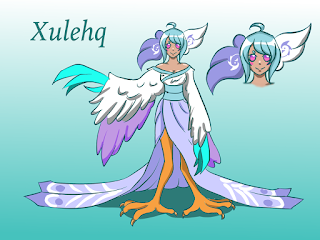The Facts About Hyperthyroidism and Hypothyroidism
The difference between hypothyroidism and hyperthyroidism is that one is caused by an underactive thyroid gland while the other is an overactive thyroid gland. The thyroid glands are small glands, almost butterfly-shaped, situated in the front of your throat as the base.
Hypothyroidism is an underactive thyroid gland. This is a condition in which the thyroid gland does not manufacture enough of specific important hormones, causing a chemical imbalance in your body. The two important hormones being triiodothyronine and thyroxine, also known as T3 and T4. These two important hormones have a huge impact on your body and health, affecting all aspects of a person’s metabolism.
Hypothyroidism primarily affects women in the sixties and older. Untreated, it may lead to such things as obesity, infertility, joint pain, heart disease and even an enlarged thyroid (goiter). Most symptoms of hypothyroidism can include fatigue, sluggishness, weight gain, high cholesterol levels, depression, impaired memory, even constipation. Many other symptoms may occur and it is important to let your doctor know of any and all symptoms you are experiencing. The most common treatment for hypothyroidism is hormone replacement therapy in the form of medication.
Hyperthyroidism is caused by an overactive thyroid gland. A condition in which the thyroid gland produces too much of the hormone thyroxine. This condition can speed up your body’s metabolism, causing a rapid or irregular heartbeat, sudden or dramatic weight loss, irritability, sweating, or even nervousness. Other symptoms include fatigue, heat intolerance, enlarged thyroid gland (goiter), increased appetite, and insomnia. If untreated it may lead to a rare health condition known as Grave’s ophthalmopathy which include red or swollen eyes, light sensitivity, and blurry vision. Several different treatment options exist, including anti-thyroid medication, radioactive iodine to slow the manufacturing of the thyroid hormone, and surgery.
Certain foods to avoid with Hypothyroidism are any foods that contain gluten, including bread, pasta, and cereal. Soy foods, certain vegetables such as broccoli, cabbage, spinach, and certain fruits such as peaches, strawberries, and pears are also to be avoided. Foods to avoid with Hyperthyroidism include any foods containing trans-fat, foods high in saturated fats, any processed foods, and fried foods. Foods that may help with hypothyroidism are eggs, dairy, fish, berries, bananas, oranges, and any vegetable in moderate amounts and cooked. With both, avoid alcohol and caffeine.
Sources:



Comments
Post a Comment